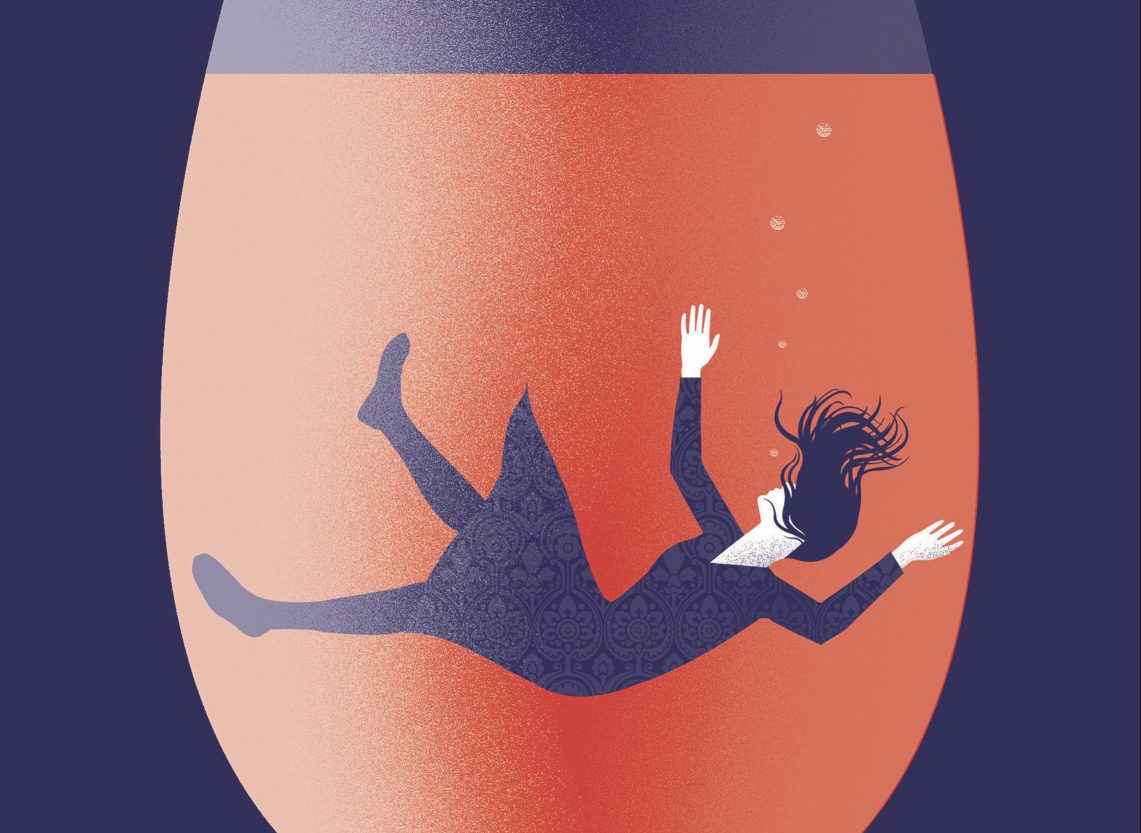They’ve never hit “rock bottom.” They don’t believe in a higher power or that they should take a “moral inventory” of their character flaws. They’re uncomfortable walking into what are often male-dominated meetings. For some women seeking to address their problem drinking, Alcoholics Anonymous is taking a back seat in favour of programs focused on empowerment and self-care, rather than the language of disease and defects.
More on Broadview…
- How well is the new United Church working?
- How helping a refugee family taught this congregation to be the church
- The heartbreaking and deeply Christian task of presiding over fentanyl funerals
In a 2019 New York Times article titled “The Patriarchy of Alcoholics Anonymous,” Holly Whitaker, one of the leaders of the new sobriety movement, questions whether an organization created in the 1930s by upper-middle-class white Protestant men is the best option to help modern women overcome addiction. “I worry that any program that tells us to renounce power that we have never had poses the threat of making us sicker,” she wrote. “Instead, I tapped into a combination of existing approaches to recovery. I focused on developing self-trust, agency, compassion, self-nurturing and reclamation of the agency I’d given up.”
Carla Santos* didn’t want to go to AA even though her drinking was so out of control that she was downing a bottle of red wine or more every night. She blamed the organization for turning her father into a zealous born again Christian. “I was grateful he found sobriety, but it put us in different worlds,” she says. “I didn’t like the element of blame in the traditional AA narrative, that if you aren’t including God you aren’t doing it right.”
But one Sunday nine years ago, she visited a Unitarian church in Toronto and the speaker was Lawrence Knight, who had started a couple of agnostic AA groups and would eventually go on to fight an Ontario human rights challenge that succeeded in allowing agnostic groups to be listed as part of the Toronto-area AA network. “That was like a divine intervention,” says Santos, 45. “I found a group of people whom I could trust and to whom I could bring my doubts, despair and questioning. They said, ‘It doesn’t matter what you believe, just don’t drink for one more day.’ It worked like magic. It gave me back my life.”
*Name has been changed
***
Anne Bokma is a writer in Hamilton.
This story first appeared in Broadview’s March 2021 issue with the title “For some women, AA isn’t the way.”
















I very much agree with this article and I’m a 20+ year member of AA. AA is not for everyone regardless of gender. I don’t care how someone sobers up so long as they are reasonably happy and at peace they did it right. AA only has ONE thing to offer, “ that one is God, may you find him now”. If that is not for you, or you are not in that place now, AA has little to offer. God got me sober and he gets all the glory for doing so. He got me to AA. They only part I played in it was drinking myself to into ruin. I worked in recovery for years. I’ve known many people that sobered up in church, in jail, and all other places, but I have yet to meet a person that stayed sober for extensive periods of time that did not do those 12 steps in some form or fashion, whether they knew that’s what they were doing or not. So kudos to the woman in the article that found what worked for them. I also know many women, powerful women, that AA was the the place they were lead to, to get sober.